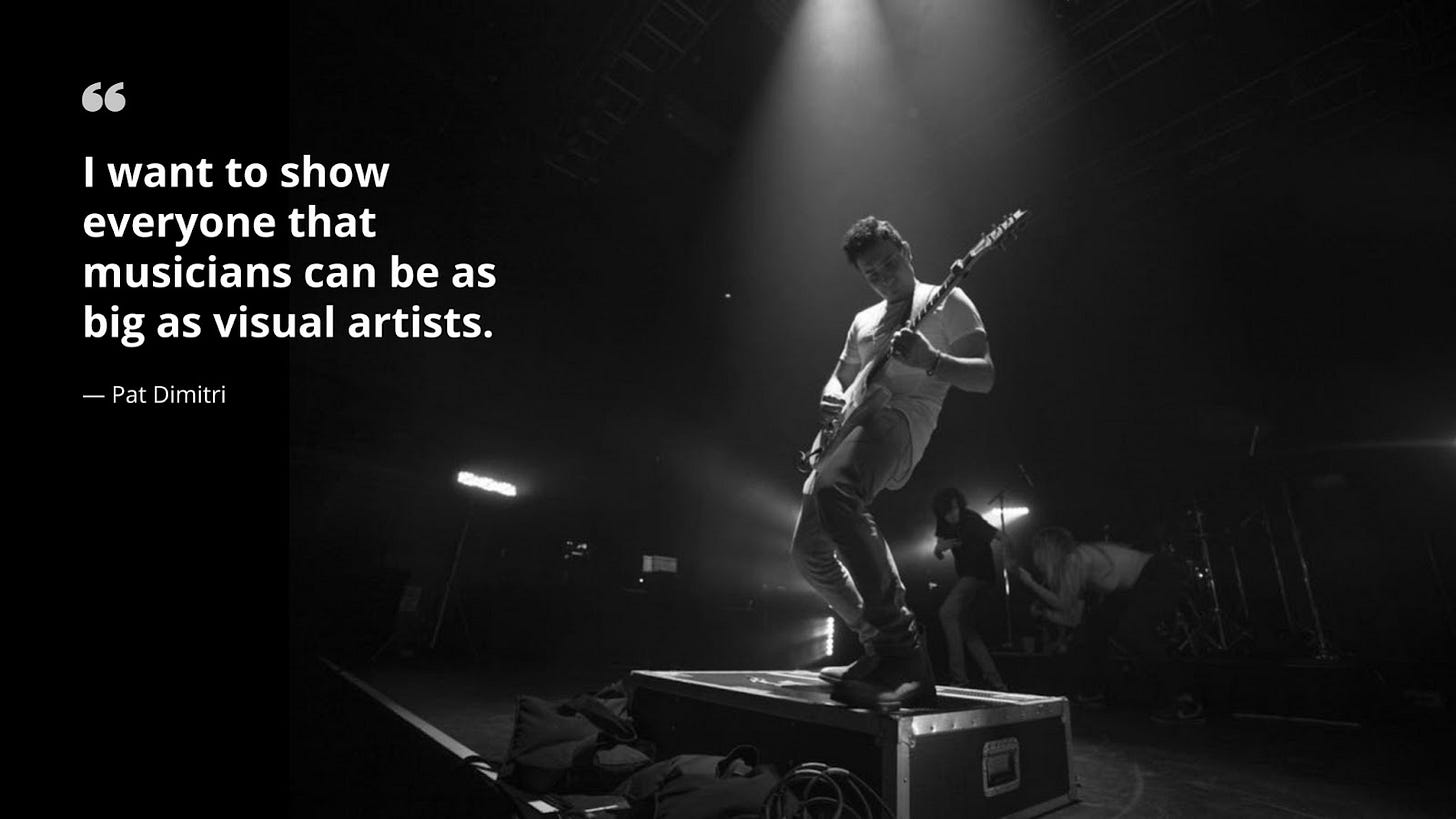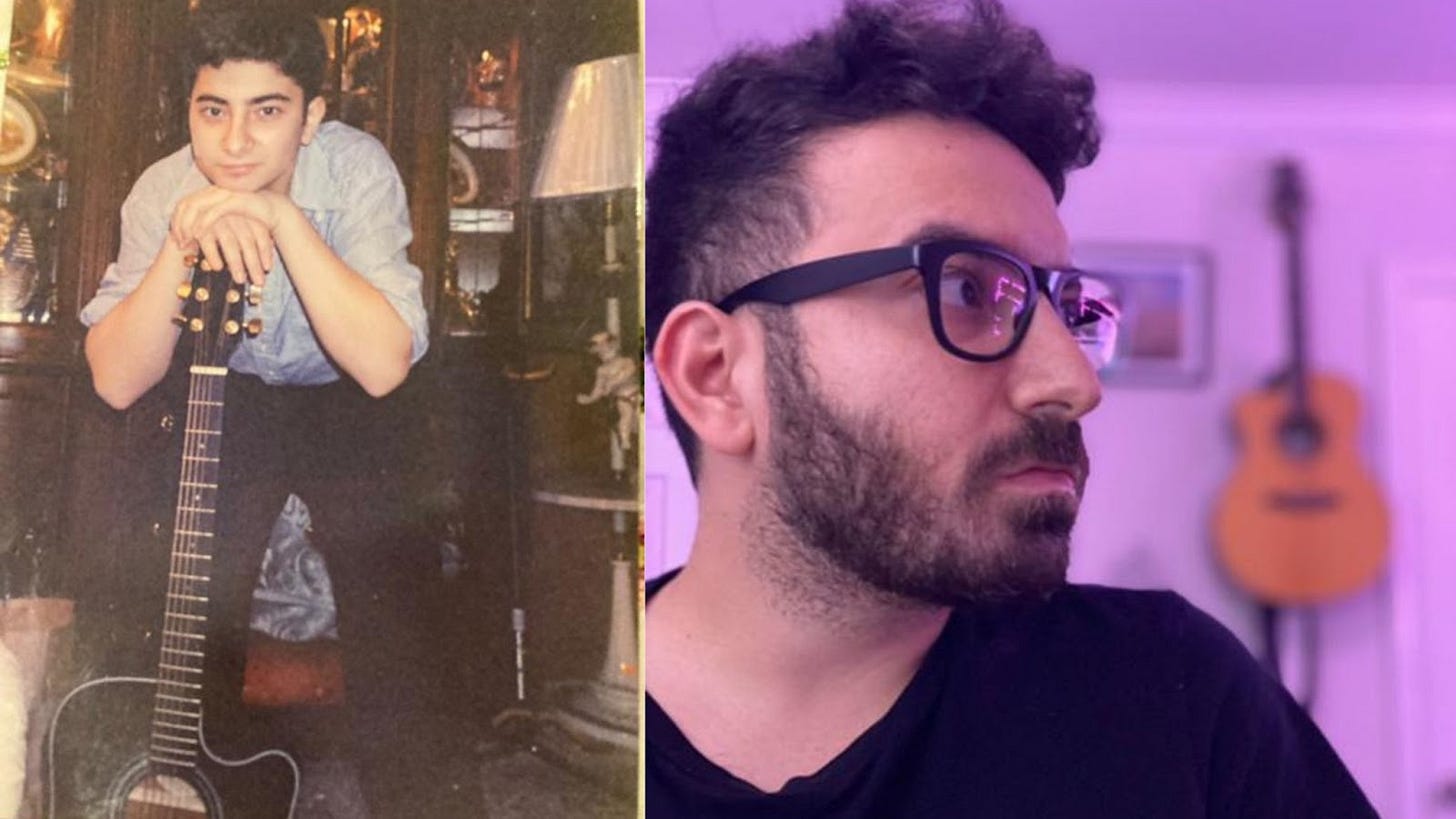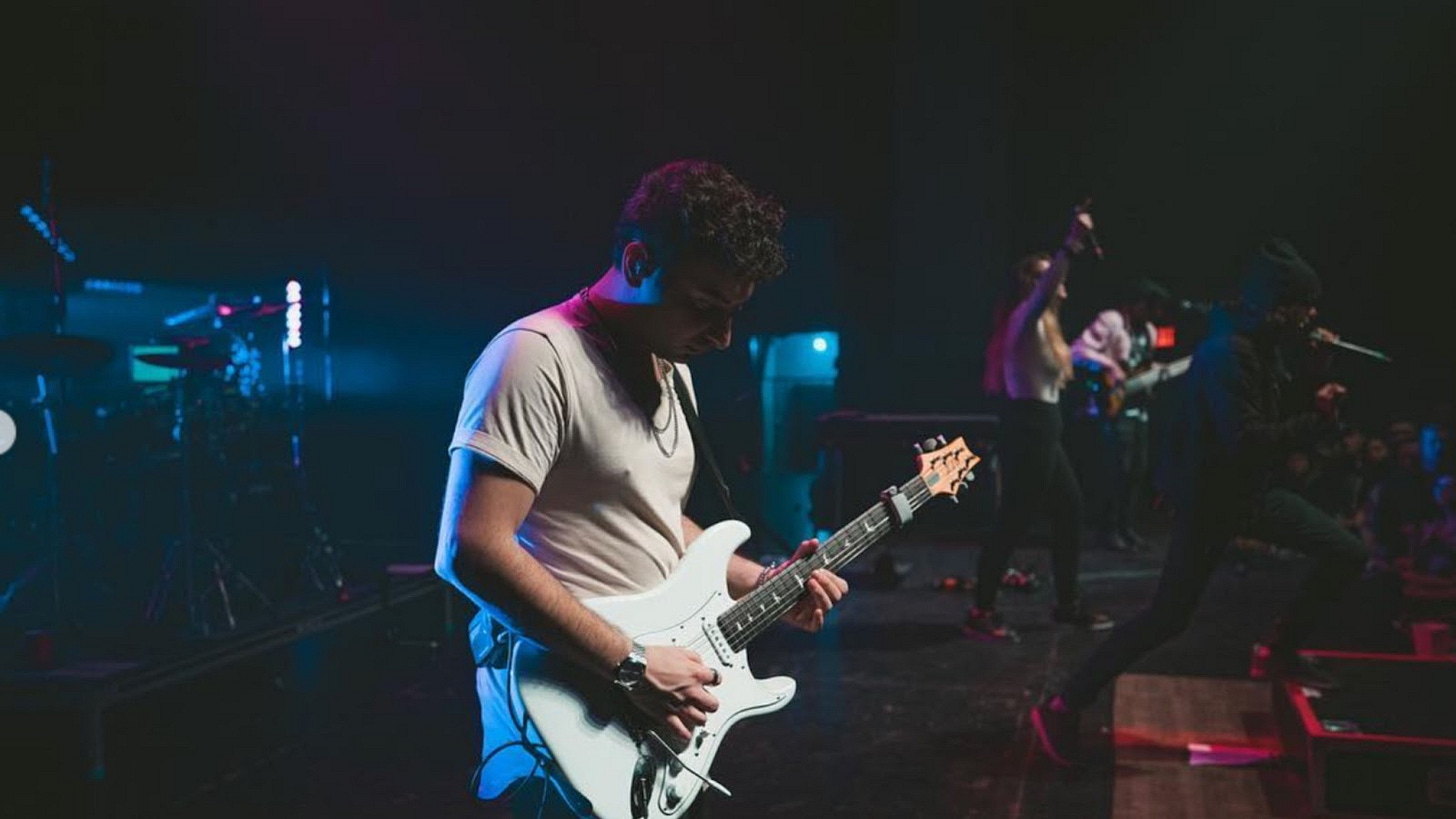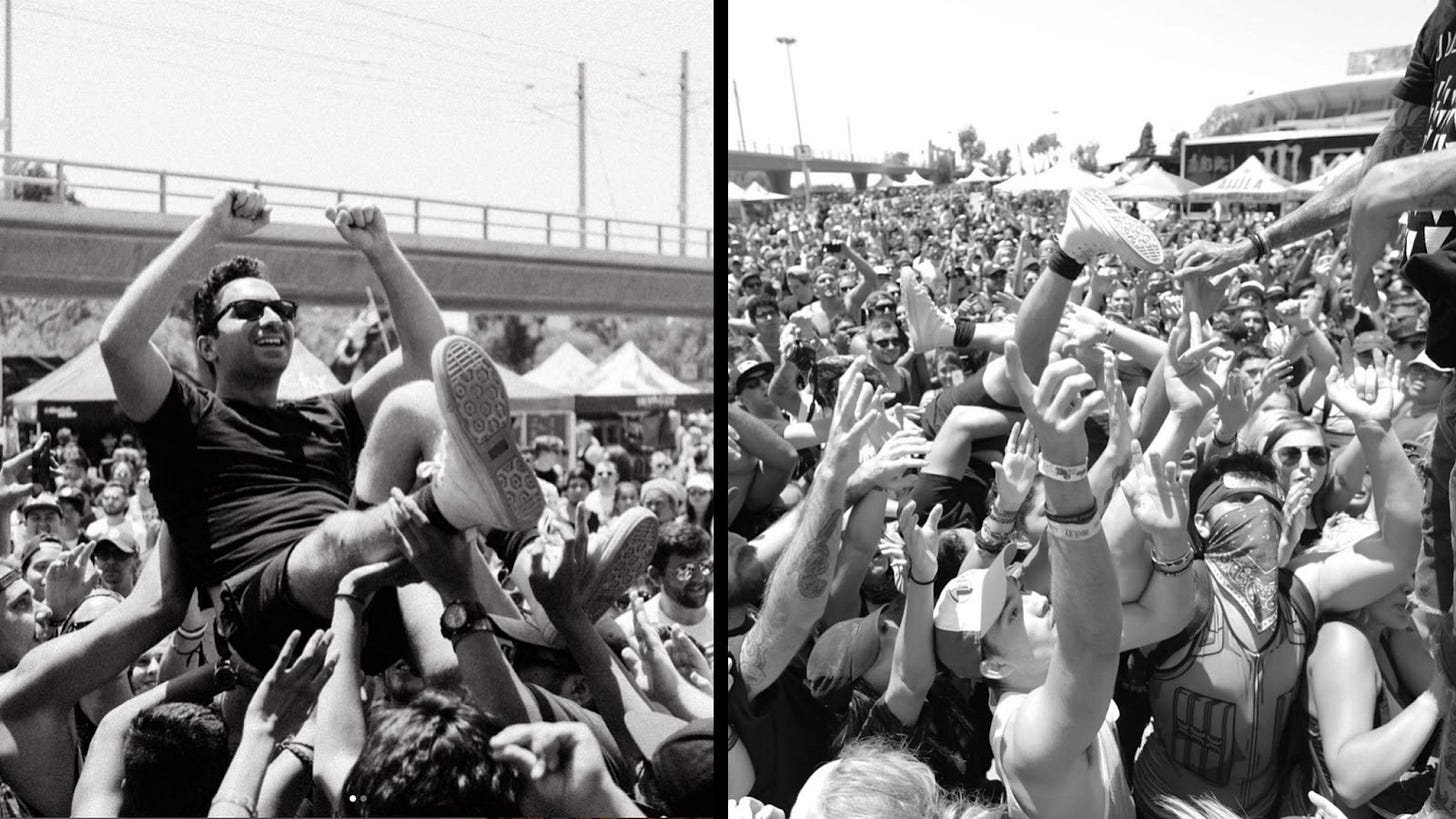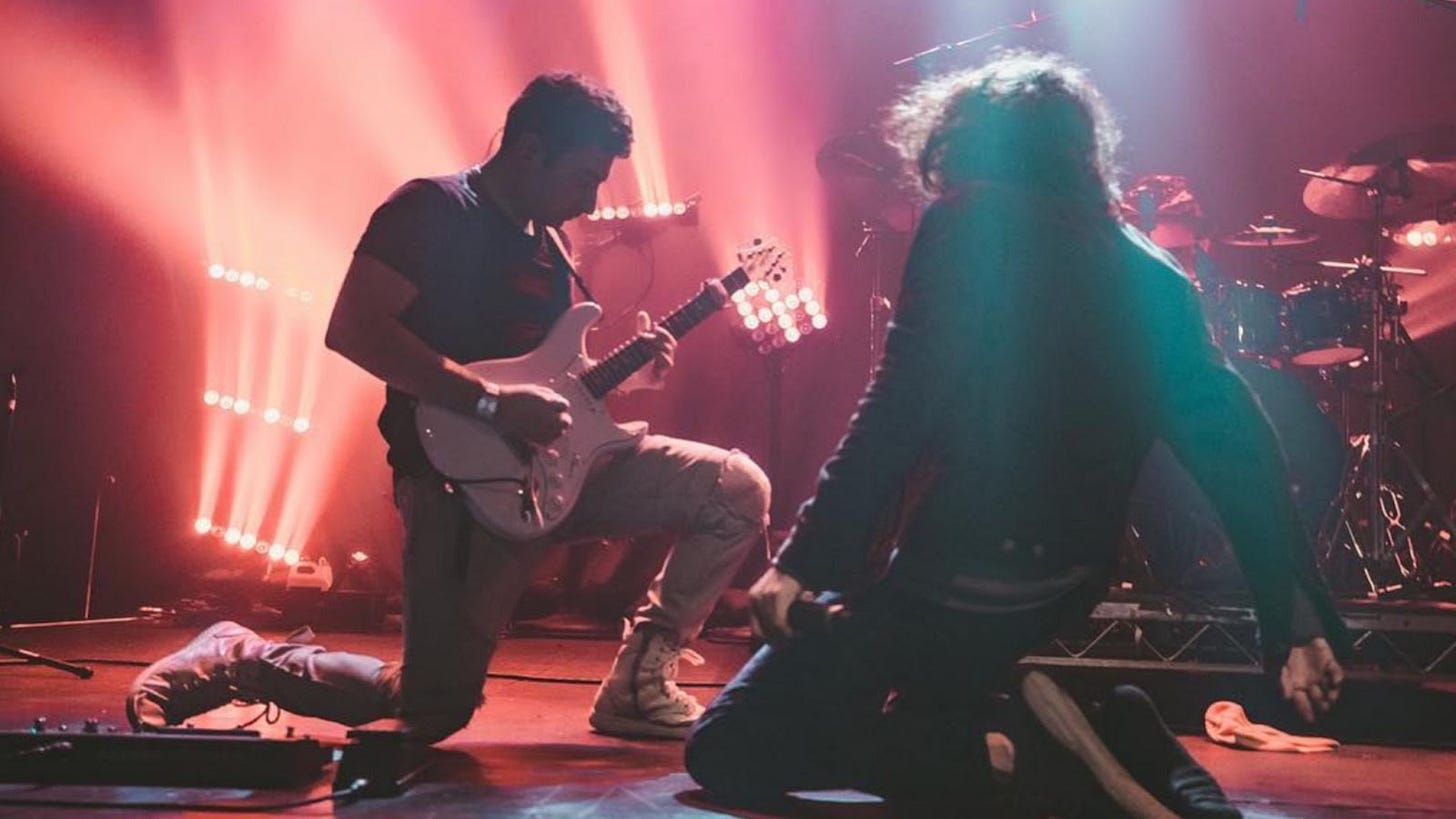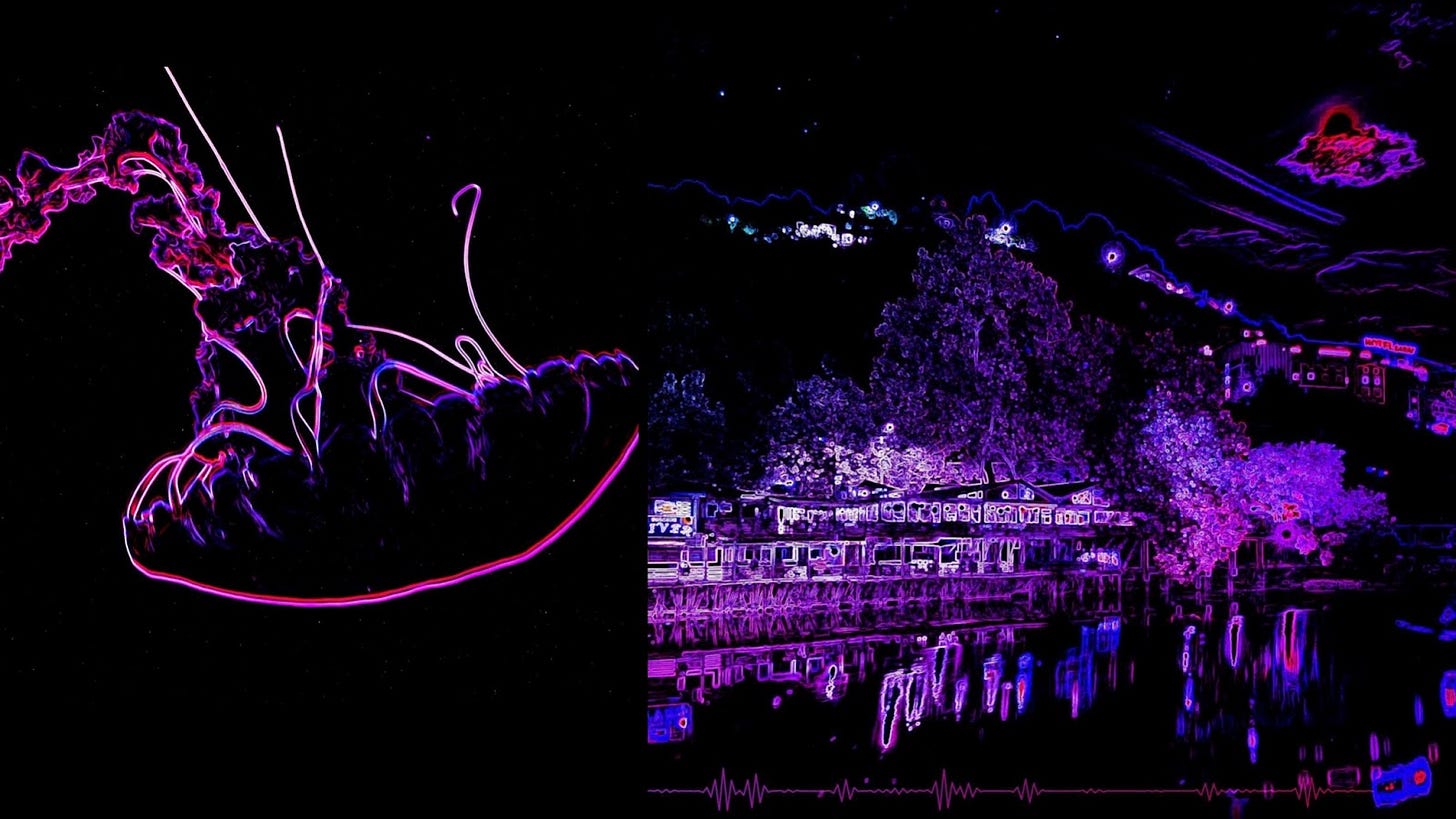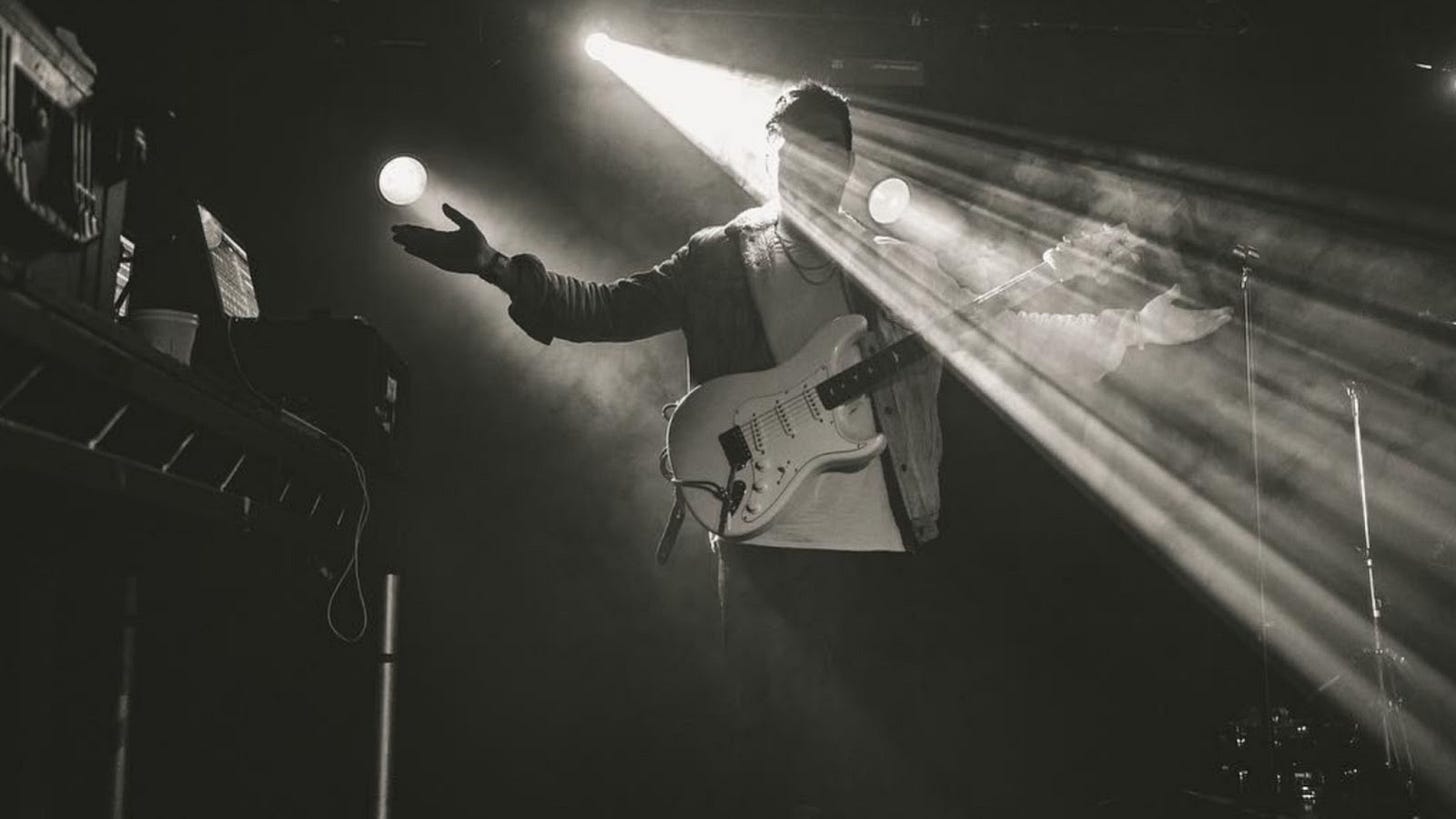NFTs changed the way Pat Dimitri made music, and eventually his life 🤟
This rockstar risked having a stable career to play the guitar. 🎵🎸
Can musicians be as big as visual artists in the Web3 space? If they can, then how can established and upcoming musicians thrive on the evolving blockchain-integrated internet?
What you’re about to read is a story of a young guitarist whose stubbornness ensured he did the one thing his heart yearned for: music. Pat Dimitri worked hard to get to where he is today, and when his hard work met the perfect opportunity, it paid off.
The birth of a rockstar
I remember always messing with the electric keyboard at home, but I never connected with it for some reason. I have a brother who's three years older, and he often listened to the band, The Smashing Pumpkins. One day, I watched Billy Corgan playing the guitar on Saturday Night Live, and I thought, “That looks cool; I can do that.”
When people say I’m gifted, I think it’s silly because I just played a lot of guitar. The guitar was easy to pick up, and I practised for hours every day for 10 years. That’s how I got good at it. I wasn't a child prodigy; I just played it all the time.
Nobody in my family is a musician, and there weren't any great musical influences in the house. My parents were immigrants who had to have a stable job so their kids could eat. They couldn’t afford to pursue art.
I didn't feel like I was getting good until I was 18/19 when I started taking the guitar more seriously. I learned mostly from YouTube until I started taking lessons in college when I was 20.
I remember getting to the guitar lessons, and all I cared about was blowing people’s minds and fuelling my ego by playing really fast—the type of thing any teenage boy wants to do.
In class, the teacher pointed out that there was a huge imbalance in what I knew. I didn’t even know any chords. So, he taught me jazz, and things started opening up. I’d played video games as a kid, and the muscle memory played a role in the nimbleness of my hand.
I’ve been a musician since I was a teenager. I went to college to study music business, but at some point, I said I was going to play the guitar and that would be my business. It seemed like a foolish thing to do, but that was my decision.
At first, it was hard for my family to accept the thought of me being a guitar player and musician. It was a struggle. But I was always the most hard-headed in the family, so they couldn't tell me not to; I would never yield.
My parents are from Egypt, one a doctor and the other a software engineer. They sacrificed a lot to give me this privilege. Imagine migrating and trying to give your kid a better life, but he then goes to play the guitar. They weren't jerks, but they did everything possible to put other options in my path. I’m a stubborn person, and the more they pushed against it, the more I wanted to do it.
I’m now making great money playing the guitar. It’s cool, but I’ve been trying to find something greater for myself: a path that will get me to the future I want. For the past 10 years, I’ve been a hired gun—different artists would hire me to play the guitar for them on tour. That’s how I made most of my living.
I’ve done composing and producing for different brands and artists. Getting into that was hard because it’s very competitive. I did it. But after 10 years of it, I wasn’t getting what I wanted.
Web3 is the first time that this could be it. I tried to go the solo path, where I put my music on Spotify. That was received well, but there’s no money in that. NFTs have been one of the first things that have made me realise I can get the financial freedom I’ve been looking for my whole life.
I remember having a conversation with my mom when my first drop sold like crazy. I told her I was making more money in one day than I’d made in a long time, and I could feel my parents relax for the first time in my life. The whole time they’d been anxious.
They’ve seen me play in front of thousands of people multiple times. I’ve brought my four-year-old nephew on stage and gotten about 2,000 people to chant his name. They’ve also seen me on live TV, but this was the first time they saw there could be a chance for me.
I think parents should be easier on their kids because they would either do what they want to do anyway or they would do something that they're not really into and then resent you for it. So, just let them do their thing.
Combining NFTs and music
In January and February of 2021, NFTs started coming up everywhere on my radar: on TikTok, Instagram, and Twitter.
I’m friends with Dave Krugman; he’s a photographer, and we went to the same high school together. Dave has all these amazing photos, and he’s sold a lot of pieces. He’s one of the big names in the NFT space. He onboarded me to a Clubhouse room with many brilliant people talking about NFTs.
NFTs signify the immutable, verifiable digital ownership of a token. That token can be anything: an image, a song, or a video that says if you buy this you can get backstage access to all of my shows forever.
Back then, I was active on Clubhouse for 10 hours every day. In June, Weinbagz—a musician—and I started this music NFT room on Clubhouse. Nobody cared about music NFTs back then; everything was just graphic design. There would be five to 10 people in the room who were just trying to make it. I just kept showing up, and people thought, ‘This guy is a good musician.’
I learnt how to animate in 2021; how to make visuals so that people would click on the sound button to listen to my song. I’d take footage of animals, then I’d hyperedit them and animate it to the music. I leaned into a certain colour aesthetic.
I knew I was a good artist. My work started to sell slowly because I was always in Clubhouse, and I priced things cheap. People would be like, “You’re a cool guy, I picked a piece.” The sales were trickling in.
One of the people I was sitting in this audio room with was a guy named Pop Wonder. He’s one of the highest-selling NFT artists today, and we were in rooms together when he was just making his first sales. One day in July, all he did was retweet my work and it sold out instantly.
I released another one the next day, and it sold instantly again. The prices of my pieces rose from 2Eth to 5Eth. After that, I started dropping one or two pieces a week. I did that for a few months and then, in September, I tweeted that I would like to be on the front page of OpenSea before the year was over. The next day, OpenSea DMed me and asked if I wanted to do this. OpenSea featured me, and now my volume of trade is like 8Eth.
Though it’s not a lot compared to my friends and the people I look up to, it’s amazing. I'm grateful, but there’s a lot of room to grow.
I feel like when you’re in a competitive space like art, you need to get lucky one way or the other to succeed. But you can put yourself in positions where you can get lucky and capitalise on that luck when it comes.
If I hadn't been ready to be on the front page of OpenSea, a feature would’ve cost me $40,000. If I couldn’t create high-quality work quickly, or if I didn’t have any experience as a composer and musician, I wouldn't have landed on the front page of OpenSea. I wouldn't have made as much money as I make now.
Next-level art
The feelings of questioning myself often stem from financial pressure. I love music. If I was born extremely wealthy or if I had $50 million, I wouldn't be lying in bed asking myself what I was doing and if it’s the right thing.
It all comes down to guilt and insecurity. There’s the guilt of letting down my parents who made a sacrifice and everyone who believed in me and said I was going to be something special when they saw me play the guitar as a young person. Then there’s the insecurity that if you believe that you’re good at what you do and it doesn't work, then you were wrong.
I’ve learnt that greatness isn’t determined by external factors. The only way to succeed is to delusionally believe in yourself and go where you want to go. The day before I was featured on OpenSea, I was just as good as I was the day after and yet the money being thrown at me was very different. Don’t question it when it’s not going your way. That’s how it is for me.
I want to show the world what I'm capable of. Every day, I think about how I can move on to the next level so people can pay attention to me, even though it’s not the best for my mental health. I’ve collaborated with the best artists in the world. I have ongoing revolutionary works that combine physics and art. This success has made me much hungrier and much more motivated. Now that it’s been confirmed to me externally that I'm what I always thought I was, nobody can stop me.
Learning to evolve
One of my best traits is knowing when something is done and, when it’s not, how to fix it. It takes years to refine that skill.
Sometimes, rejection is a great thing because every time I’ve been rejected, it’s made me learn things and go above and beyond in a way that I wouldn't have if I was just given what I wanted.
I used to play the guitar for an A-list artist who’s a Grammy winner. I’m a fantastic guitar player, and I’m good at my job. I’m easy to be around, I give good insights, and I can play and learn anything by ear faster than the next guy. Yet I got fired because they wanted somebody who looked different. That made me mad and sad.
At the time, we were on tour set to open for Nick Jonas. I was friends with his music director. I reached out to him and said, “You told me I was one of the best guitar players you’ve ever seen, but they just fired me. What do I do now?” He said, “That means that it doesn't matter how good you are. That sucks, but it’s a harsh reality.”
What I got from his response was if you take complementary skill sets, you’re harder to fire. He taught me how to run live tracks during a show. He was the keyboard player, and he controlled the backing tracks which ran the whole show. I took this skill set, and that gave me way more hire-ability. Now, if anyone wants to fire me for facial reasons, it’s their loss; few can do two jobs at a time.
From that rejection, I learnt an important lesson, a new skill, and the software I use to compose music every day. Not getting what I wanted made me take matters into my own hands and helped me figure things out. Rejection isn't always a bad thing even though it always feels terrible.
Collaborating with other artists
Getting into NFTs, I was inspired by artists in the space who were creating something beautiful and were being rewarded for it. My music NFT is supposed to be this short but sweet audio-visual story, and that's what they've been doing.
For me to convince someone to buy art for hundreds and thousands of dollars, I have to give them something special. In this space, I need to connect with the artist. Whatever their medium is, if I’m cool with the artist or close to them, I find a way around it. It doesn’t matter whether it’s 3D, poetry or animation.
I have an extensive background in playing music over poetry. One of the people I’ve toured with the most is an artist named Wanski who became successful as a poet and then as a rapper. I was in his band for 10 years. He's a phenomenal rapper, but part of our tour was poetry with music beneath it.
Right now, I’m collaborating with Gabe Weis who’s a cubist and a successful artist in the NFT space. I’ve collaborated with Jimena, who is a brilliant minimalist artist. I have a project consisting of 10 one-of-one NFTs that combine physics with AI and music.
This space rewards people who do innovative things, and who try to get ahead more than others. But that’s easier said than done. I’m one of the artists who has shared something new in music before or among a handful of artists. I want to be very consistent, posting something new every other week. I have my 10 one of one art that I’m going to title Sound Waves, and I also do generative drops. There are other things in the works I can’t talk about just yet. My whole brand has been audio-reactive art, there’s a visual and it’s literally reactive to the audio.
A collaborator on a piece I’m working on has a 500Eth volume trade, and I think it's an honour that someone like that is interested in collaborating with a musician. These visual artists truly are taking a chance on me, and I want to do right by them.
I want to show everyone that musicians can be as big as visual artists. I want to reward them and also reward people with something that hopefully transcends both of the aesthetics we have.
On creating a community
Everything begins and ends with a human connection. To me, community means connecting with people. I have a small Discord with about 200 people, and anyone is allowed on it. I try to always think of ways to reward my collectors, and I have a collection section where I hold giveaways.
I haven't told anyone this before because I didn't do it to get credit. But one of my collectors, who has become an acquaintance and a friend, got hacked and lost their NFTs. I felt so bad. I gave them additions out of the two or three primaries I had because they're sweet, and I wanted to make them feel better. It didn’t cost me a penny to brighten somebody's day, and I was thrilled to do it.
People rally around me because I'm this way with everybody, and I think how you build a community is sending ideas on connection, around the art that I make. So, when people come to meet in Discord, they’re dealing with me; all of me 24/7.
If you’re good with who I am, then I don't have to change what I am all the time. There are different tools we have to use as creators to connect with people, and Discord happens to be one of them.
Five things to know about Pat
He’s stubborn and driven.
For a musician, he rarely listens to music. Instead, he seeks out film and video game scores and production sounds.
He listens to comedy and sports podcasts like Smartless.
He used to tour with Anderson Paak.
He makes music every day unless he’s away from home or has to work on an animation that takes up his whole day.
You can follow Pat Dimitri on Twitter and Instagram, and check out his work via his official website.
Thank you to my amazing Faces of Web3 teammates:
💛 Esther Eze for conducting this interview,
💛 Ruth Zakari for editing, and
💛 Seni Oremodu for publishing.

